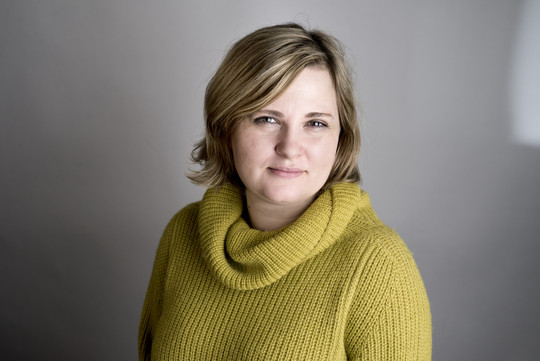You are becoming honoris causa doctor at the Brussels University. What does this award mean for you?
It is a very important support for my work. It means both protection and recognition of what my newspaper and I have achieved.
In recent weeks, the government of Russia passed a new law on fake news that raised concerns among press freedom defenders. What is your view of this law and more generally on the state of press freedom in Russia?
For the last several years, our Parliament accepted many laws that worked against freedom of speech and freedom of the press. The government tries to control every behaviour on the Internet. The only thing authorities are afraid of is critical thinking and critical public opinion. They want to shut people’s mouth. However, controlling the whole Internet is very expensive and requires a lot of time. I doubt such laws will be implemented much in reality, but it is likely to increase corruption because money can be captured by companies in charge of implementing the laws.
Is it possible for media in Russia to write about anything they wish?
We have very few independent media left, but they can still write about a lot of things. However, their impact on society is very limited. Most of the Russians get their information on TV which is under the control of the government or of oligarchs. Russian TV is not free at all. The few free media that are left have a very limited audience.In addition, the State is beginning to use the Internet as a source of propaganda and invest a lot of money into it.
Novaïa Gazeta, the newspaper you are working for, has seen six of its journalists killed in recent years. Can you feel safe working in Russia?
I can feel safe when I work. Sometimes I get threats and we just have to deal with it. After a while, the situation changes and things get back to normal. But it is not only about me and my newspaper. The problem is general. The state does not protect journalists. It refuses to use the law to protect journalists. Moreover, journalists face the risk to be prosecuted and sent to court.
You decided to continue the investigations of killed Russian journalists, including Anna Politkovskaya who was killed in 2006. Why?
When there is impunity for those targeting journalists, one of the ways to react is to show that no matter how many crimes you commit against journalists there will always be another journalist to continue the job. That is what I do. However, Russians are increasingly afraid of talking to journalists and sharing their stories with them. People are afraid of telling the truth.
What are the main cases you investigated?
Right now, I write mostly on human rights-related topics in Chechnya: illegal detention, torture, killings… Chechen are Russian citizens and formally they all have rights guaranteed by the Constitution. But everyone who lives in Chechnya can be kidnapped or killed with impunity. Moreover, the region is very closed and there are very few journalists there. Inhabitants can be punished if they talk to journalists. I am one of the few who can write.
Is your job in Grozny different than it would be in Moscow?
There are times when we have to hide our existence and work and it is dangerous for us to be there. When we published our investigations on the persecutions against LGBTI people in 2017, we received threats and had to leave the country. However, in January 2018 I decided to come back when the head of the human rights NGO Memorial Oyub Titiev was arrested. Since that day, I have often travelled to Grozny and I am working officially. I attend trials and write about the situation. But it is likely to change any time and then I would have to hide again.
Why do you keep on doing your job despite the risks?
Because I like my job and I think it is very important to do it. My job helps to save people and it is my choice to be useful for society.
What are your expectations in the near future? Do you think the state of press freedom in Russia can get better?
Russia is in transition. You cannot expect from a country with a very long history of an authoritarian and totalitarian regime to immediately become democratic. In my opinion, what is very important for Russian people and their way to democracy is that the European Union and people who live in it protect their own values. What has been happening in Russia for many years is also going on in Europe with the rise of nationalism. European are losing their rights because of the threat of terrorism. It is actually pretty scary. It would be easier for Russia to strengthen press freedom if it is not betrayed in the rest of Europe.
SR


